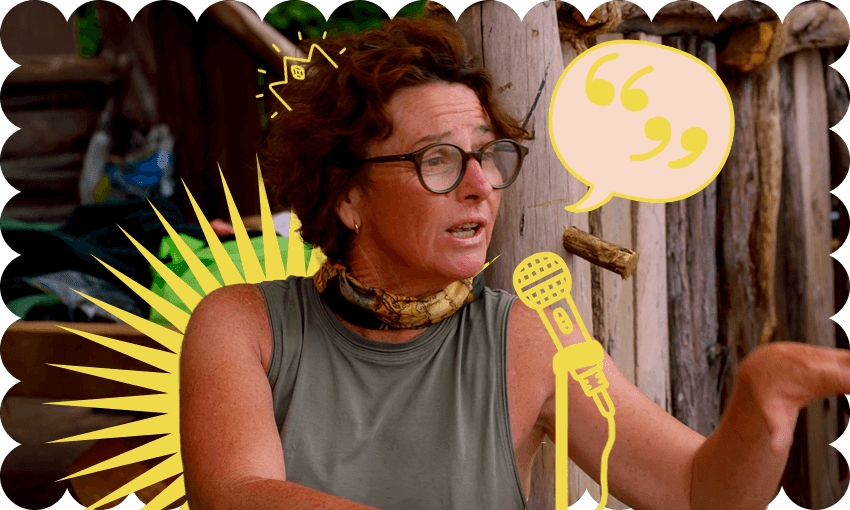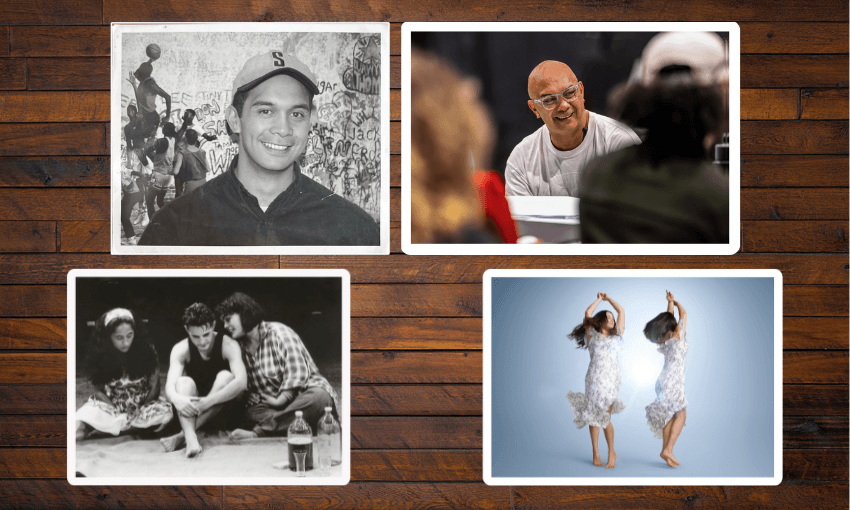She’s been a squash world champion, a race relations commissioner, and now she might just be the breakout television star of 2022. Alex Casey counts the ways.
Prior to Celebrity Treasure Island, Dame Susan Devoy was known for one pithy, but powerful quote. “Centrum: complete from A to Zinc,” the squash world champion and yet-to-be race relations commissioner mused in the 90s multivitamin ad. “Do you feel 100%?”. Two decades on, the Devoy phrasebook has been updated in a big way to now include turns of phrase like “big vag”, “pissholes in the snow” and “bushpig”.
The Centrum ad now joins everything created prior to September 5, 2022 in the monolith known as The Before Times, when Devoy was yet to be unleashed on a fake desert island and reveal her truly raucous, often feral self to 20 unsuspecting celebrities as well as the general public of Aotearoa.
Here are the greatest hits of Dame Susan Devoy on Celebrity Treasure Island, complete from A to Zinc.
Follow our reality TV recap podcast The Real Pod on Apple Podcasts, Spotify or your favourite podcast provider.
When she vomited mid-interview
We should have known when Dame Susan arrived in camp Kauri and immediately put away a whole tin of spaghetti that she was an insatiable snack-monster. Last week she feasted upon an entire crayfish with her bare hands, before delivering this outstanding mid-interview moment:
When she assessed a possum’s genitalia
Where were you when our former race relations commissioner said “Jim’s got a big vag” on national television? I was lowering myself into my own coffin, where I remain to this day.
When she pioneered beach Wordle
The word was F-R-A-U-D.
When she told Mike King to “shut the fuck up”
Yes.
When she reminded everyone she was a world champ
When she thought the monolith was a “peep show”
When a mysterious ancient structure arrived above camp, the contestants were abuzz with what it might contain. Some thought it might hold the treasure, or crucial clues, or perhaps even another surprise team member. Not our Susan though. “I think it’s a peep show,” she said defiantly, before later positing that an accompanying challenge might be “jelly wrestling”.
When she did the splits
Cam Mansel said it was “the funniest thing I have ever seen in life” and that it nearly made him “do wees”.
When she negged herself to hell and back
While everybody else was all radical self-love and positive affirmations, Dame Susan was out here with some some more realistic turns of phrase. “I nearly blew my foo foo valve,” she said of one particularly taxing challenge. “It reminded me that I’m bloody 58, my mind feels 21 but my body feels 100.” She lamented looking like “a bushpig” with eyes “like pissholes in the snow” before letting us all in our her beauty secret – her feet were “growing mould” and she had “no clean undies left”.
When she broke out in hives
When asked what was causing one side of her face to break out in angry sores, Dame Susan simply shrugged and said “I’m allergic to liars.”
When her final challenge went outside the box
Even when stepping up to her final challenge on Celebrity Treasure Island, Dame Susan did not disappoint. Toppling off a box while Courtenay delivered her emotional charity message, Dame Susan collapsed into a fit of giggles in the sand.
“Dame Susan, is there anything you can’t do?” host Matt Chisholm asked. “I can’t stand on a box,” replied our Dame.
Celebrity Treasure Island continues tomorrow night at 7.30pm on TVNZ2



